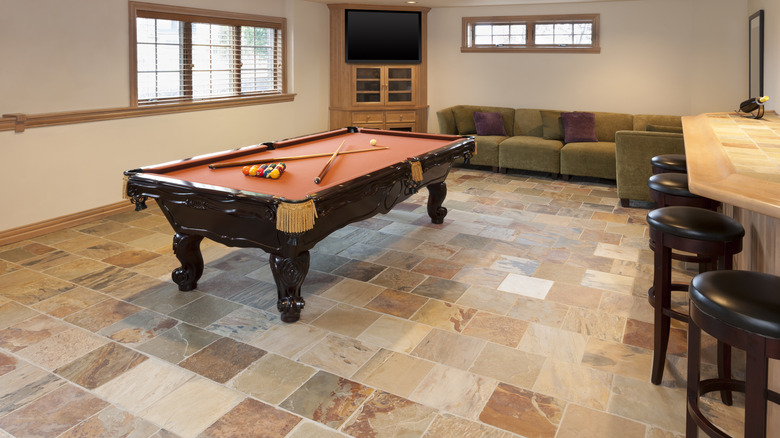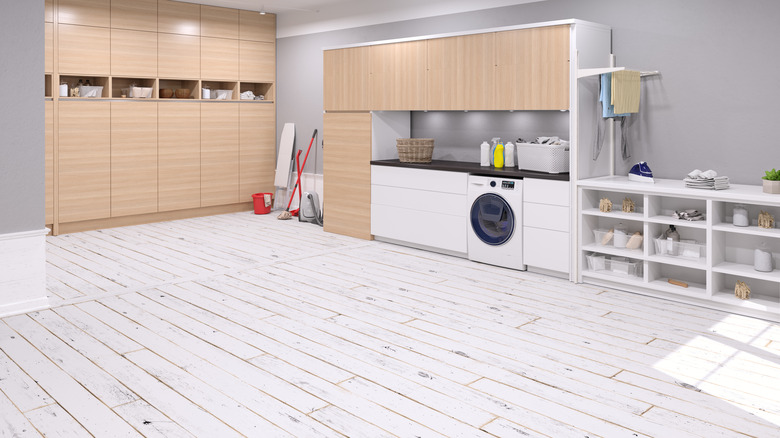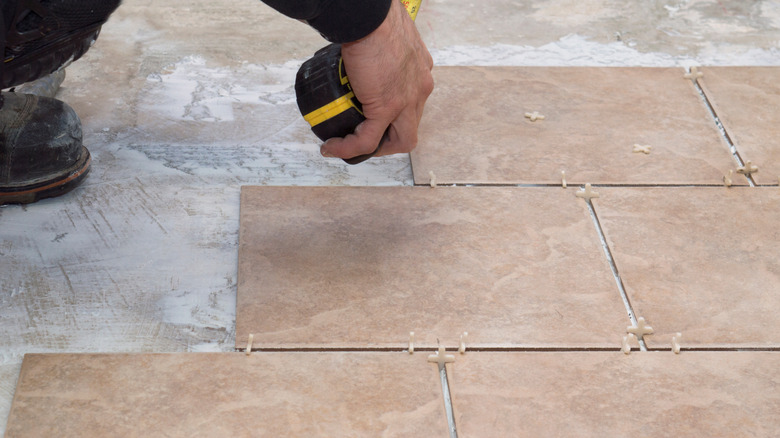Are Tile Floors A Good Choice For Your Basement?
When choosing basement flooring, there are typically several things to consider. You likely need a floor that's durable, easy to maintain, and resistant to moisture. Depending on how you use this space, you may want it to be stylish but also low-cost. Tile floors may work for many of these benefits. It depends on the type of tile you choose and the conditions in your basement.
When it comes to basement tile, both ceramic and porcelain are good options. Both materials are versatile in how they are used and tend to be a competitive price when compared to other floor options. Luxury vinyl tiles should also be considered for their versatility in both look and function. Learning the pros and cons of tile floors for your basement can help you decide which is the best choice for your space.
Tiles are durable and hold up well to moisture, but they require precision during installation and are cold to the touch, contributing to an already chilly area. The good news is that you have a lot of color, pattern, and material choices, meaning you no longer have to go with the green carpeting that's been down there since the 1950s — unless that's what you're looking for in a retro-style space! To make this choice, take into careful consideration your aesthetic, budget, and overall environment as well as how you plan to use the basement.
The benefits of tile floors in the basement
Ceramic and porcelain tiles are solid choices for basement floors for various reasons. When installed properly, they can be very durable and hard to crack or chip. Even better, they can be waterproof, which means that whether you use this area for craft projects or there's a risk of the hot water tank bursting, you know the flooring is likely going to be able to handle it. Though some products are more porous than others, most ceramic tiles can handle damp environments, such as your musky basement. Yet another benefit is that both porcelain and ceramic tiles tend to be more affordable than other products. You can expect to pay about $1.50 to $2 per square foot for most of these tile options, though that can vary based on the style and installation costs.
If installed properly, luxury vinyl tile can also be very versatile and waterproof, making it suitable for most basement environments. You'll also find that this type of product is easily used to mimic other materials, such as natural stone or wood. If you want the look of stone but not the cost, luxury vinyl tile can work well in this area. Choose from numerous patterns, colors, and overall styles that are right for your basement. As for costs, luxury vinyl flooring can be affordable, as well, but it is a bit more expensive than ceramic at between $2 and $5 per square foot for the materials.
The disadvantages of tile floors in the basement
As you consider all of your choices for basement floors, there are a few drawbacks to think about when it comes to ceramic and porcelain tile. The first is that the subfloor, which is typically concrete in a basement, has to be perfectly level. If it isn't, you'll need to do some work leveling it before you can install these tiles. Small mistakes here can increase the risk of the tile floor cracking over time. This means that you'll need to learn how to tile properly or hire a professional to install it. Having a knowledgeable installer helps to avoid mistakes when tiling and increases the overall durability of this flooring option. Also note that, from a comfort perspective, tile is cold, which can amplify a chilly basement even more.
Aside from the higher cost, luxury vinyl tile can offer some drawbacks of its own. First, it may be difficult to install if you've never installed this type of product before. Precision cuts are often the drawback. It's also a bit less beneficial to your home's resale value. If you have flooring in the basement that looks like wood but is actually vinyl, that could take away from the value of the space to some buyers. And, while many products do offer water resistance, not all are waterproof. If your basement is a bit more damp than others, that could be a factor to consider. Whichever type works best for you, tile is often an ideal option when choosing basement flooring.


